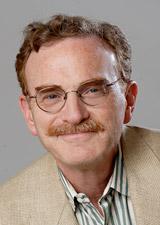
Mechanism of Membrane Protein Sorting into Transport Vesicles
About the speaker

Randy Schekman
Professor of Cell & Developmental Biology, University of California, Berkeley
Dr. Randy Schekman is a Professor in the Department of Molecular and Cell Biology, University of California, Berkeley, and an Investigator of the Howard Hughes Medical Institute. He studies the enzymology of DNA replication as a graduate student with Arthur Kornberg at Stanford University. His current interest in cellular membranes developed during a postdoctoral period with S.J. Singer at the University of California, San Diego. At Berkeley, he developed a genetic and biochemical approach to the study of eukaryotic membrane traffic. Among his awards are the Eli Lilly Award in microbiology and immunology, the Lewis S. Rosenstiel Award in basic biomedical science, the Gairdner International Award, the Amgen Award of the Protein Society, the Albert Lasker Award in Basic Medical Research and the Louisa Gross Horwitz Prize of Columbia University. He is a member of the National Academy of Sciences and the American Academy of Arts and Sciences. In 1999, he was the President of the American Society for Cell Biology and was appointed Editor of the Annual Review of Cell and Developmental Biology. In 2002, he was elected Chair of the Biochemistry Section of the National Academy of Sciences and was selected as Scientific Director of the Jane Coffin Childs Memorial Fund for Biomedical Research.
Protein secretion is a fundamental and evolutionary conserved process in nucleated cells. Membrane traffic processes are responsible for cell growth compartmentation of metabolic pathways, and specialized activities such as hormone, growth factor, neurotransmitter, and antibody production.
Beginning in 1976, Schekman and his co-workers used genetic approaches to study membrane traffic in yeast cells. Ingenious methods were devised for the detection and enrichment of conditional mutants defective in the secretory pathways (sec mutants). Many genes were defined that chart a pathway of membrane transport and protein sorting that is remarkably similar to the pathway defined by cytologic means in mammalian cells. Schekman was the first to recognize that the mechanism of this complex but ubiquitous process could be dissected using a combination of molecular biology and biochemistry, and that yeast would be the simplest model system where such techniques are readily available.
Given the similarity in the transport processes across the evolutionary spectrum, the practical advantages of yeast fermentation have made this an important vehicle for the production and secretion of proteins important to the pharmaceutical industry. Recombinant hepatitis vaccine, the only commercial hepatitis vaccine on the market, is produced in yeast. One quarter of the current world supply of recombinant human insulin is produced by secretion in yeast. Much of the background for the applications was provided by Schekman’s elucidation of the secretory pathway in yeast.